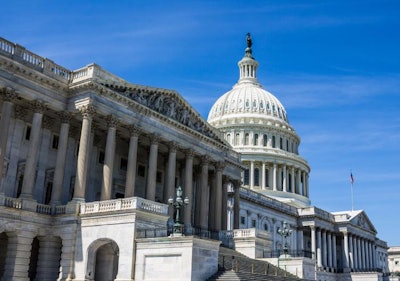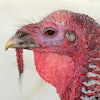
The leaders of the U.S. Senate and House agriculture committees on December 10 released the text of the proposed farm bill, known as the Agriculture Improvement Act of 2018.
The new farm bill does not include the Protect Interstate Commerce Act (PICA), also known as the King amendment. However, the draft of the bill does include Conservation Reserve Program (CRP) reforms, which have the support of the National Grain and Feed Association (NGFA).
The proposed bill has advanced past the conference committee and is subject to a vote from the U.S. House and Senate, and ultimate signature from the president.
“The 2018 farm bill is our opportunity to make the American food and agriculture systems work more efficiently. I’m pleased to say we have done just that in this conference report,” said Senate Agriculture Committee Chairman Pat Roberts, R-Kansas. “We started this journey nearly two years ago. Since then, the Senate Agriculture Committee has held dozens of hearings, listened to more than 90 witnesses, and received thousands of public comments. As promised, this farm bill provides much needed certainty and predictability for all producers – of all crops – across all regions across the country.”
Rep. Collin Peterson, D-Minnesota, the ranking member of the House Agriculture Committee who is presumed to become the committee chairman during the next session, also praised the bill, as it “invests $300 million in the prevention and response for animal pests and disease.”
King amendment not included bill
The King amendment, named after its author, Rep. Steve King, R-Iowa, calls for the end of laws such as California’s just-approved Proposition 12 on the basis that such laws allow one state to regulate agriculture production practices in other states, which King says is unconstitutional. Proposition 12 calls for the end of cages in egg production in California, as well as the sale of eggs produced elsewhere that use cages.
PICA had been under fire from a largely Democratic group of senators who wrote to Roberts and Ranking Member Debbie Stabenow, D-Michigan, urging them to not support the King amendment, and not include it in the farm bill.
The bill, however, was supported by the National Association of Egg Farmers.
“This is disappointing news as the amendment upheld the U.S. Constitution Commerce Clause and would have benefited egg farmers selling eggs into California and other pending states. Rep. Steve King said he did everything possible to keep his amendment in the farm bill, and so did the National Association of Egg Farmers,” Ken Klippen, the association’s president, stated in an email.
According to Klippen, King said he would re-introduce the legislation in the next Congress. King wrote a similar amendment for the farm bill four years ago, but that amendment did not make it into the final and existing farm bill, signed by then-President Barack Obama.
NGFA responds to farm bill’s CRP reforms
In response to the release of the farm bill text, NGFA President and CEO Randy Gordon released the following statement:
"The 2018 farm bill language unveiled by congressional negotiators this week includes several Conservation Reserve Program (CRP) reforms that the NGFA supported throughout the process, including reducing rental rates to provide a market-based disincentive to enrolling productive cropland. Too much productive farmland currently is enrolled in CRP, and reducing rental rates should help refocus the program on truly highly erodible and environmentally sensitive land. This policy change also benefits young and beginning farmers and ranchers who for too long have been forced to compete directly against the federal government to access farmland, a troubling policy when the average age of the American farmer is 58.
"While NGFA would have preferred that Congress limit the CRP acreage cap to the program's current 24 million acres - as too many whole farms and acres of prime farmland are idled while environmentally sensitive acres are left unprotected through the program's general sign-up process - the Association appreciates the conferees' adoption of a reasonable CRP limit of 27 million acres with 2 million acres of those expressly reserved for grasslands, especially in light of pressure early on from some groups to expand the CRP cap by a whopping 66 percent to 40 million acres. In implementing CRP, we also will be encouraging USDA to view this as a cap, not a minimum requirement for CRP enrollment. …”
"The farm bill also includes an important provision for grain handlers regarding domestic official grain inspections by providing dozens of grain elevators whose non-use of service/open season exception agreements were revoked by USDA in 2017. Under the farm bill language, these elevators will have the option to restore the previous arrangement with their non-incumbent domestic official inspection provider by notifying USDA of the change.”
Secretary Perdue endorses bill
U.S. Secretary of Agriculture Sonny Perdue praised the work of done on the farm bill, although he did acknowledge it had a few weaknesses.
He issued the following statement: “I welcome the introduction of the farm bill conference committee report, and hope the Congress can approve this legislation expeditiously. This legislation maintains a strong safety net for the farm economy, invests in critical agricultural research, and will promote agriculture exports through robust trade programs. While we would have liked to see more progress on work requirements for SNAP recipients and forest management reforms, the conference agreement does include several helpful provisions and we will continue to build upon these through our authorities. As farmers prepare to make decisions about next season, I commend the leadership of the conference committee in producing a bill that can be passed before the year’s end. If Congress passes this legislation, I will encourage the president to sign it.”
















